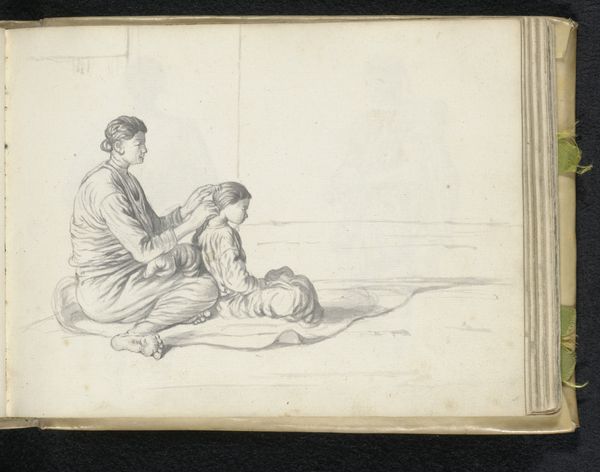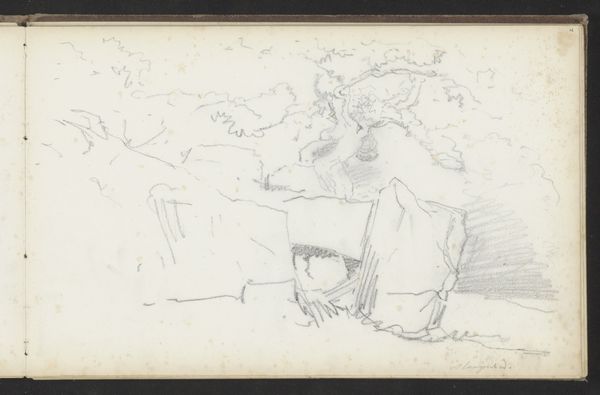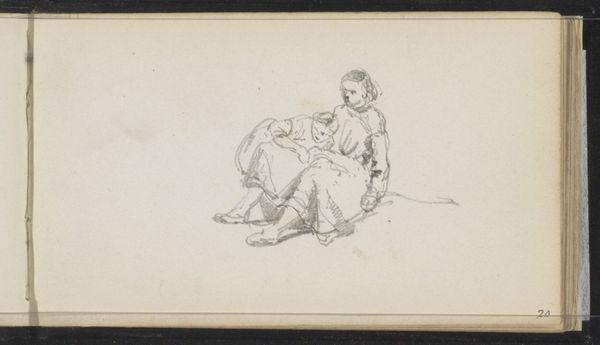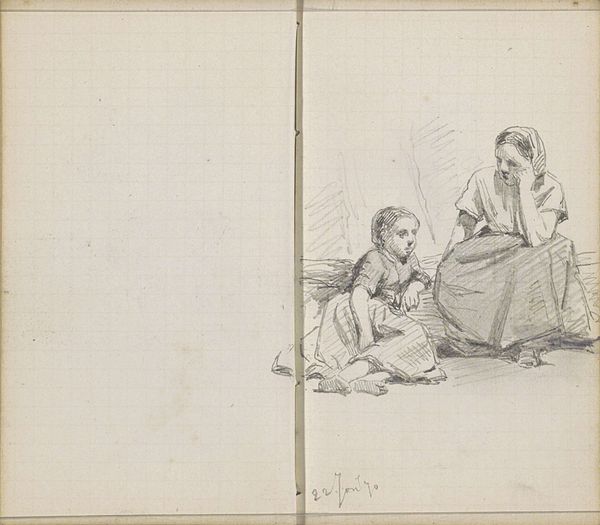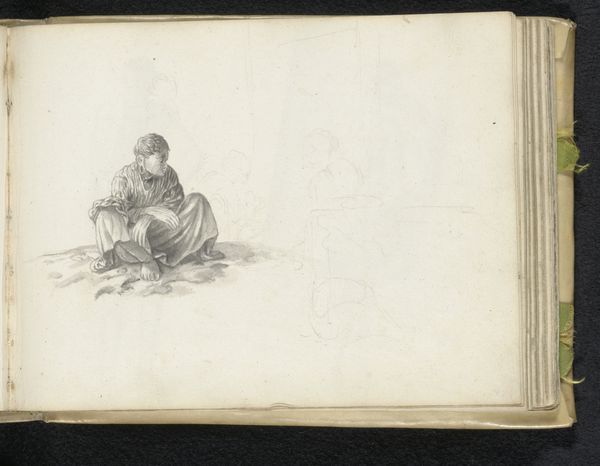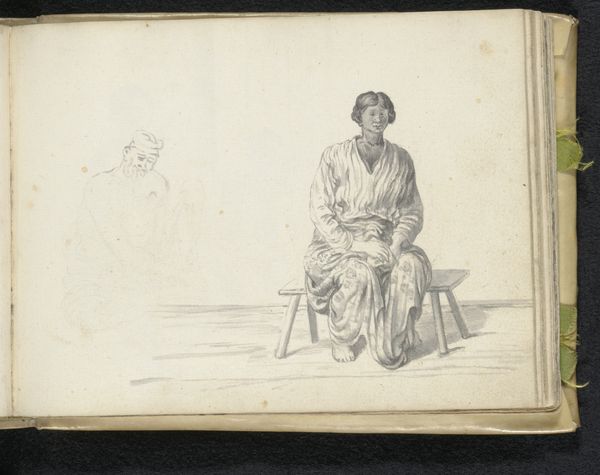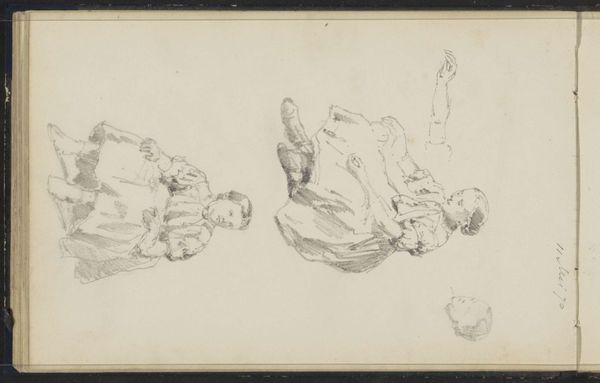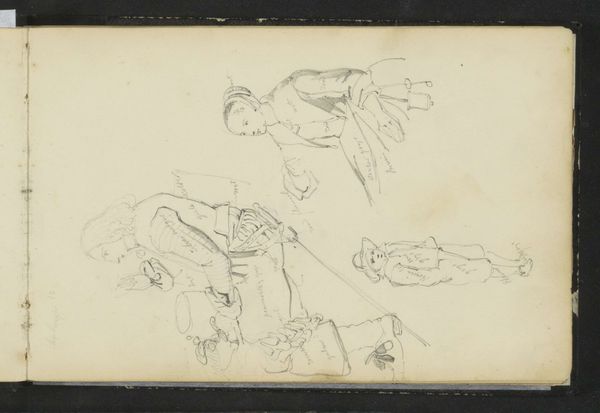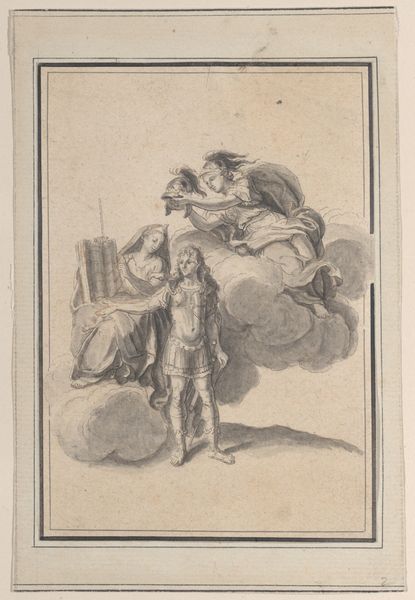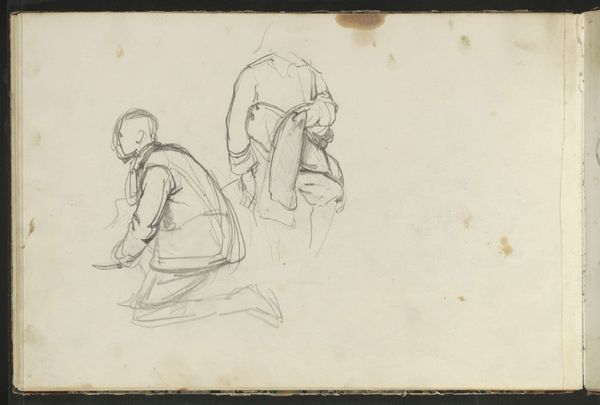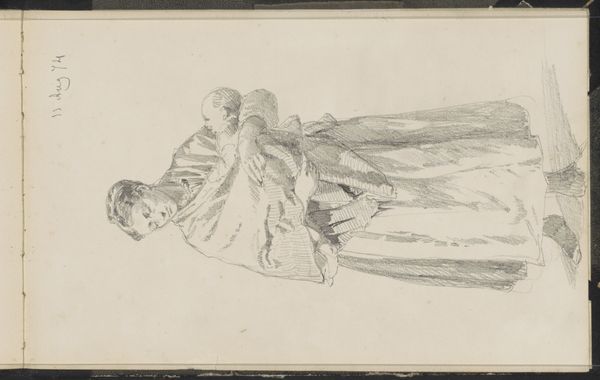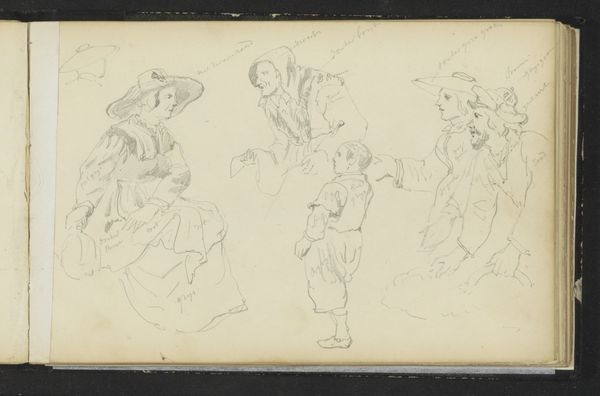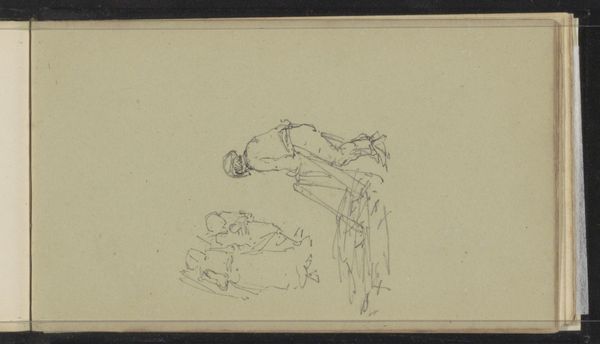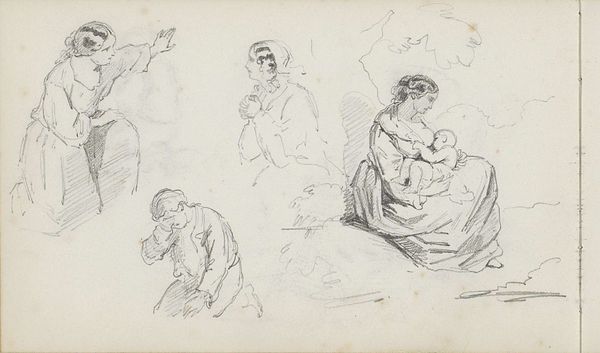
drawing, paper, pencil
#
portrait
#
drawing
#
toned paper
#
light pencil work
#
pencil sketch
#
sketch book
#
figuration
#
paper
#
personal sketchbook
#
romanticism
#
pen-ink sketch
#
pencil
#
sketchbook drawing
#
watercolour illustration
#
genre-painting
#
sketchbook art
#
watercolor
Copyright: Rijks Museum: Open Domain
Curator: The delicacy of this piece gets me every time. This pencil drawing, titled "Kinderen," is attributed to Arnoldus Johannes Eymer, likely created sometime between 1803 and 1818. The soft tones achieved with pencil on paper give it an almost dreamlike quality. What's your immediate reaction to it? Editor: I'm struck by a pervasive sense of melancholy, almost quiet resignation, punctuated by a subtle feeling of hope. The figures feel suspended between realities, an echo of societal burdens experienced at a very young age. It speaks volumes. Curator: Absolutely. You feel that tension immediately, don't you? It resonates. I think what really captures that mood for me is the contrast between the sketchy, unfinished elements, particularly at the top, and the tender detail in the children's faces. There’s a rawness alongside a deep sensitivity. It reminds me of memories both fleeting and permanent. Editor: Yes, this composition creates layers. Considering the historical context, child labour and its impact come to mind. Children often mirrored the experiences of adults in their labour, and their roles blurred familial, educational and economic domains. This can make one question their representation, particularly since many sketchbooks were commissioned or used for pedagogical purposes. Curator: Interesting point. Do you see an innocence despite that labor or is the labor defining their identity? Editor: The romantic style softens reality in this era and can provide a false innocent picture while social commentary becomes more important. Curator: The way the figures are arranged, the one with a hand gently on the other's shoulder. It's like a fragile support system. A little like childhood itself, precious yet burdened, beautiful because it doesn't have to take itself too seriously. Editor: And that simple medium…pencil on paper; its disposability, fragility and the relative ease of producing images reminds of the ephemeral nature of their conditions and how, despite that, representation and narrative emerge and shift perspectives. Curator: I'll be holding that thought, definitely lingering with me today. Thank you for that powerful way of seeing, its something new for me. Editor: My pleasure! I am deeply thankful to be able to engage with art in meaningful, even troubling ways and exchange such notions with yourself, and with others as well.
Comments
No comments
Be the first to comment and join the conversation on the ultimate creative platform.
